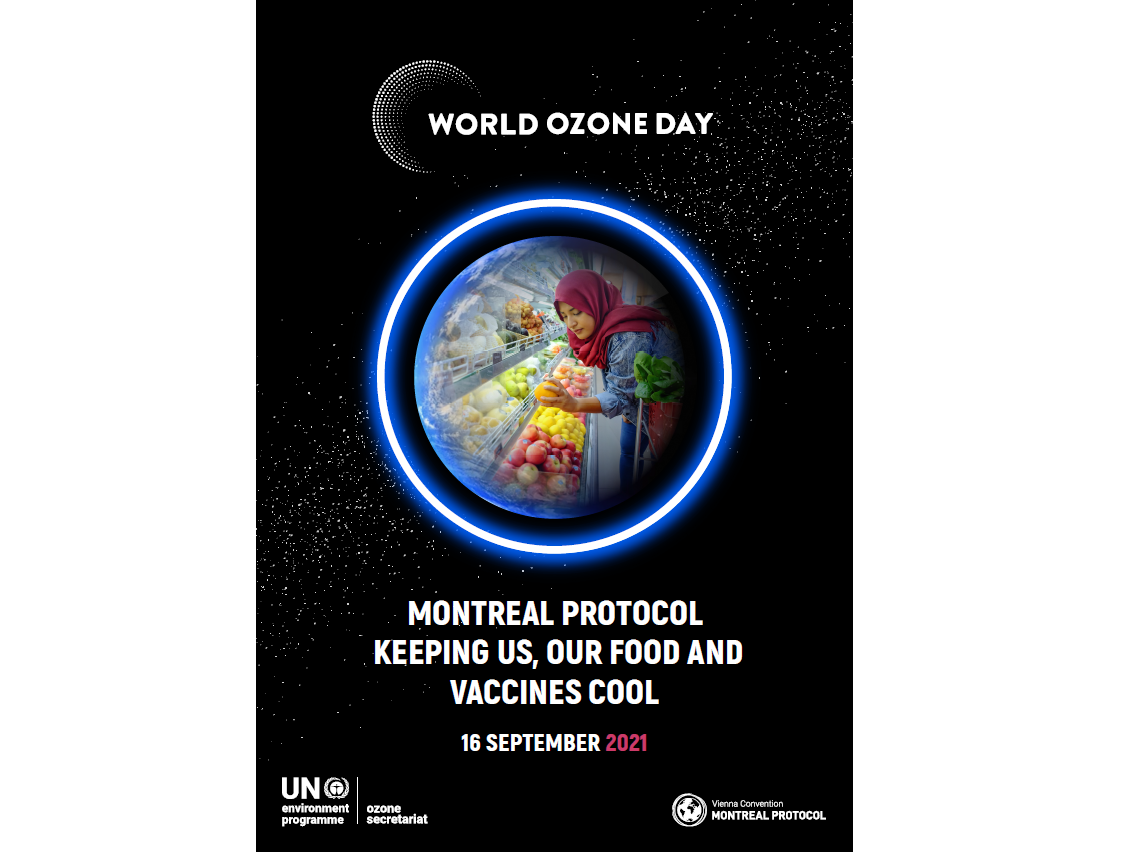The Montreal Protocol started life as a global agreement to protect the ozone layer, a job it has done well, making it one of the most successful environmental agreements to date. A united global effort to phase out ozone-depleting substances means that, today, the hole in the ozone layer is healing, in turn protecting human health, economies and ecosystems. But, as this year’s World Ozone Day seeks to highlight, the Montreal Protocol does so much more – such as slowing climate change and helping to boost energy efficiency in the cooling sector, which contributes to food security.
Many ozone-depleting substances warm the climate, so the agreement has already slowed climate change. The Kigali Amendment to the Montreal Protocol is set to deliver even stronger climate benefits. Under the Amendment, nations have committed to phase down hydrofluorocarbons (HFCs). While HFCs don’t damage the ozone layer, these coolants are powerful greenhouse gases. Reducing their use, as agreed, is expected to avoid up to 0.4°C of global temperature rise by the end of the century, while continuing to protect the ozone layer.
The Kigali Amendment also provides an opportunity for improved energy efficiency in the cooling sector. New innovation replacing HFCs offers an opportunity to redesign air conditioning and refrigeration to use less power, allowing expansion of comfort cooling and cold chain efficiencies without increasing climate impacts. The combination of reducing HFC consumption and improved cold chain efficiencies, particularly in developing economies, will also combat food loss.
Around one third of all food produced globally for human consumption is either lost or wasted each year, largely due to a lack of access to cold chains. Food loss and waste amounts to billions of US dollars a year; not only wasting precious resources such as land, water and energy, but also generating an estimated 8 per cent of total greenhouse gases per year globally.
By developing cold chain solutions that are more efficient, more climate friendly, and cheaper to buy and operate, cold chains will become more effective and widely available. This will provide producers such as farmers and pharmaceutical providers with access to pre-cooling, refrigerated storage and refrigerated transport – ensuring products such as food and vaccines reach people in safe and good condition.
On this World Ozone Day, we celebrate and acknowledge the Montreal Protocol and its Kigali Amendment in its wider efforts to keep us, our food, and vaccines cool.
https://ozone.unep.org/
16 September 2021
World Ozone Day
Related news
Caverion Austria acquires Lepuschitz Kältetechnik GmbH
Caverion Austria has acquired Lepuschitz Kältetechnik GmbH, a refrigeration specialist based in Wernberg, Carinthia. The acquired company employs 18 people and generates annual revenue of approxima...
today
REFCOM registers 9,000th member amid regulatory and market pressures
REFCOM, the UK’s F-Gas certification body, has reached 9,000 members, marking a new milestone in the refrigeration, air conditioning and heat pump (RACHP) sector. The growth reflects increasing dem...
24 Jun 2025
Today marks World Refrigeration Day 2025
World Refrigeration Day is being celebrated today, June 26, 2025, as an annual global event to raise awareness about the importance of refrigeration, air conditioning, and heat pump (RACHP) technol...
26 Jun 2025
HARDI and AHRI Challenge New York HFC Rule in State Court
Industry groups cite procedural flaws and conflict with federal AIM Act.
Heating, Air-conditioning & Refrigeration Distributors International (HARDI) and the Air-Conditioning, Heatin...
10 Apr 2025
Hussmann Partners with Refra to Supply CO2 and R290 Systems in Aust...
Exclusive deal brings transcritical CO2 racks and R290 heat pumps to local market.
Hussmann, a Panasonic company, has entered into an exclusive partnership with Refra to supply natural r...
12 May 2025
Daikin Europe reports €5.03B FY2024 turnover with growth in commerc...
Daikin Europe N.V. has reported an annual turnover of €5.03 billion for fiscal year 2024, ending March 31, 2025. This result reflects a slight increase over the previous year and contributes to...
13 May 2025
